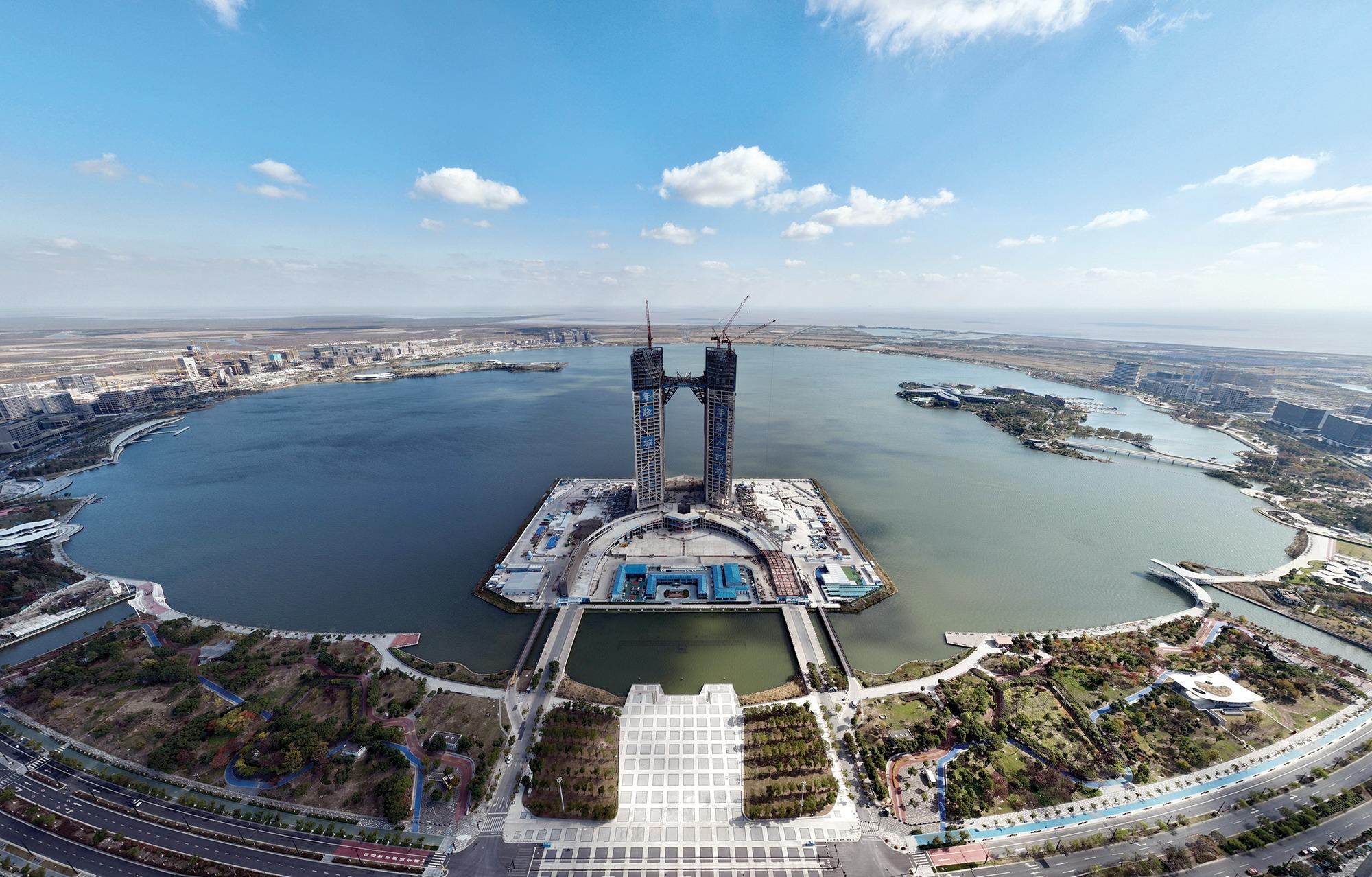 A view of the construction site of the west island financial center project at the Lin-gang Special Area in Shanghai on Nov 24, 2023. (PHOTO / XINHUA)
A view of the construction site of the west island financial center project at the Lin-gang Special Area in Shanghai on Nov 24, 2023. (PHOTO / XINHUA)
Lin-gang Special Area, a part of the China (Shanghai) Pilot Free Trade Zone (FTZ), will accelerate efforts to facilitate companies’ cross-border businesses by better addressing the major development targets, demands and various problems, said Yuan Guohua, Party secretary and chairman of Lingang Group, a local State-owned enterprise responsible for the development of Lin-gang.
Yuan made the comments during an open group meeting held by the Shanghai delegation to the second session of the 14th National People’s Congress on March 6.
Lin-gang has been speeding up to formulate lists to categorize general and important cross-border data. The first lists have been initially completed, including more than 20 scenarios covering remote diagnosis of intelligent connected cars, investment and research information pertaining to the mutual fund market, management of multinational corporation groups, and biomedical clinical trials and research and development. They will be released soon upon further demonstration and argumentation, Yuan said.
READ MORE: FTZ driving success, prosperity
Meanwhile, Lin-gang will align with international high-standard economic and trade rules such as the Digital Economic Partnership Agreement (DEPA) and the Comprehensive and Progressive Agreement for Trans-Pacific Partnership at a faster pace, he said.
In specific, efforts will be made to set up a DEPA cooperation demonstration zone and explore building a cross-border electronic invoice interoperability platform. Lin-gang will connect with the international digital identification system to experiment with the cross-border mutual recognition of digital identity. The application scenarios of electronic bills of lading should be expanded. The area should make more efforts to establish a blockchain cross-chain public service platform and actively participate in the country’s pilot program of shipping trade digitalization, Yuan said.
As explained by Yuan, Lin-gang is already accelerating the infrastructure construction for cross-border data flow.
The area has been promoting the construction of new submarine cable landing stations and directly connected submarine cables. It has been exploring the construction of functional data centers for international offshore data business. The development of new forms of data businesses, such as international data cloud services, computing power services and offshore data outsourcing, has also picked up pace in Lin-gang, Yuan said.
ALSO READ: Lin-gang key to high-quality development
A public service platform for cross-border data flow is in the pipeline to provide companies with one-stop services while ensuring cross-border data security, he added.
According to Yuan, nearly 60 companies specializing in cross-border data flow businesses have settled down in Lin-gang’s international data economy industrial park, which was officially launched in late October.


